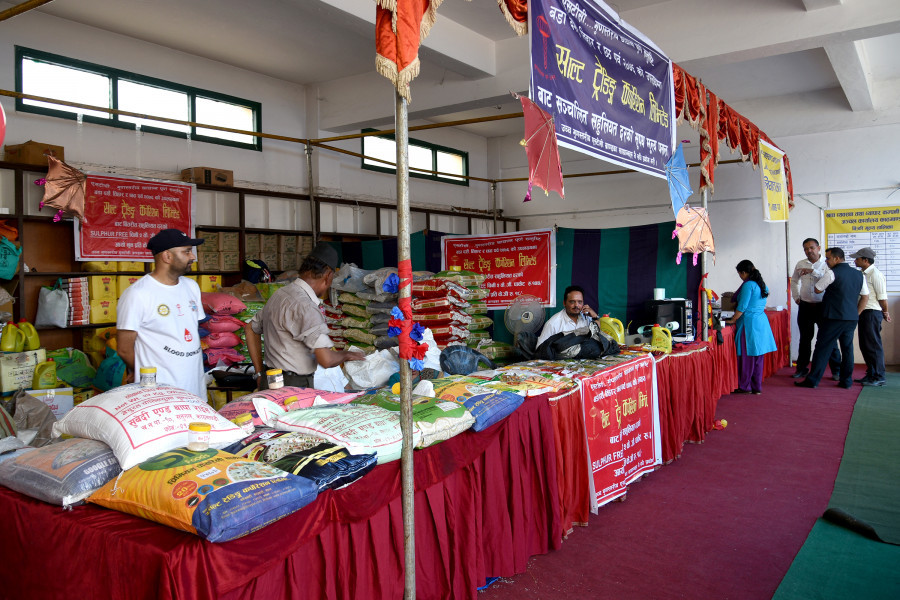Money
There are sufficient stocks of food and shipments arrive regularly, officials say
Factories manufacturing food products have been allowed to resume production.
Post Report
There are sufficient stocks of food and shipments arrive regularly, officials said amid public concerns over supply disruptions caused by the Covid-19 lockdown
According to the Ministry of Industry, Commerce and Supplies, imports during the last 17 days of the lockdown consisted of 37,334 tonnes of groceries, 14,054 tonnes of legumes, 21,626 tonnes of vegetables, 5,962 tonnes of fruits, 80 tonnes of dairy products, Rs100.87 million worth of raw materials used to manufacture medicines and Rs560.97 million worth of medicinal drugs.
Industry Minister Lekh Raj Bhatta said that all vehicles entering the country were being sprayed with disinfectant at the customs points.
The government and private sectors have a combined 125,290 tonnes of rice, 7,294 tonnes of sugar, 158,990 tonnes of salt, 16,081 tonnes of legumes and 16,868 tonnes of lentils in stock.
The domestic food industry has enough rice to last four months, lentils for three months and edible oil for three months.
Factories manufacturing food products have been allowed to resume production in the first phase under the government's plan to reopen essential industries. The government plans to allow industries making materials needed for construction and development to reopen next after studying the situation.
The ministry said food factories in the industrial corridor were operating at 41 percent of capacity, oil factories at 63 percent, drinking water factories at 90 percent, dairy factories at 50 percent, feed factories at 33 percent, drug factories at 73 percent and brick factories at 48 percent of capacity.
Bhatta said that talks were being held with trade union officials to create a safe workplace by following all safety procedures.
Masks, sanitisers and personal protection equipment will be produced in the country; and if they need to be imported, the process will be fast-tracked.
The ministry said that shops selling food items would be allowed to open so that the public would have convenient access to daily essentials. But due to lack of coordination between various government agencies, grocery stores have not been allowed to open. If they are permitted to open, it is for brief periods only.
Talks are also being held to bring vegetables from the farmers’ fields directly to the market, officials said.
Salt Trading Corporation and Food Management and Trading Company have started distributing and delivering food items through food distribution centres, cooperatives and mobile vans.
The two state-owned companies have also started online sales of grocery item. They have issued 1,113 tonnes of groceries as relief packages to daily wage earners.
Grocery inventories are checked daily, and if there is any sort of shortage, deliveries are made immediately. The District Administration Office collects data of overall food stocks.
There is regular supply of gasoline. Nepal Oil Corporation plans to distribute full cylinders of cooking gas from April 12. The corporation has been issuing half-filled cylinders due to a spike in demand.
Masks and sanitisers arrived from China on April 8 following the reopening of the Tatopani border point.
Following a video conference among SAARC countries on April 8, trading procedures have been simplified under the South Asian Free Trade Area considering the urgency of the situation.




 14.24°C Kathmandu
14.24°C Kathmandu














